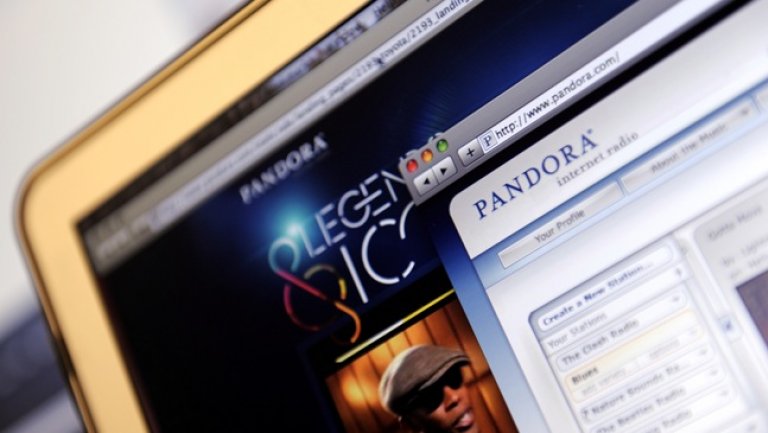A Michigan man’s federal class-action lawsuit claims Pandora Media violated his privacy by sharing his identity along with account information with other people online.
A question about whether Pandora lends music to its users was presented to the Michigan Supreme Court on Wednesday in the suit that argues Pandora Media should pay $5,000 for each alleged violation of Michigan’s Video Rental Privacy Act, which states information about materials rented or lent/borrowed cannot be disclosed to a third party.
Attorneys on either side argued Wednesday, April 27, before Michigan Supreme Court justices at the Jenison Center for the Arts on a proposed question of whether Michigan resident Peter Deacon has a claim against Pandora under the state act, hinging on whether Pandora is in the business of “renting” or “lending” sound recordings, and whether Deacon is customer.
Deacon created a Pandora account in 2008 and filed a class-action complaint in 2012 in California, alleging Pandora violated the act by disclosing his name, listening history, bookmarked artists and bookmarked songs so they were searchable on the internet and viewable by his Facebook friends.
The suit also claims Pandora violated the Michigan Consumer Protection Act, seeking damages under VRPA of $5,000 per class member and an order requiring Pandora to stop disclosing the personal profile information.
The federal district court dismissed Deacon’s claim, granting Pandora’s motion for summary disposition and concluding Deacon failed to state a claim under the VRPA.
Deacon appealed the court’s decision to the Ninth Circuit Court of Appeals, which noted, “resolution of the issues in this appeal has the potential to affect the privacy rights of millions of Michigan residents” as it certified the question to the Michigan Supreme Court for consideration.
“Giving someone something and taking it back is lending,” Plaintiff attorney Ryan D. Andrews argued Wednesday.
The alleged disclosure of information about the materials constitutes a violation of the act, he argued, which covers books, music and videos.
“Could the legislature perceive the use of Pandora and the internet we know today?” Justice Richard H. Bernstein asked Andrews about the 1987 act.
Andrews answered that the legislature decades ago intended to address the issue of disclosure of information to a third party and the law should apply to Pandora.
Justices peppered him with questions and hypothetical situations about people borrowing various items from each other, and whether or not the act of returning the item to the lender is required to constitute lending/borrowing.
Pandora’s attorney, Jill M. Wheaton, asked the court to consider the question presented and rule that Pandora is not in the business of lending and Deacon, a user with a free version of a Pandora account, is not a customer.
“This is like turning on the radio and hearing a classical song,” she said. “Am I borrowing that music? That’s what Pandora is, just in a new format.”
“The only difference between that and terrestrial radio is how it comes to you.”
She said the physical presence of an object being lent or borrowed is also a factor.
Justices and attorneys went back and forth about whether or not the act of choosing which song to listen to was a factor.
Wheaton argued that Pandora, not its users, selects the songs.
“If you want to hear ‘We Are The Champions” again, too bad,” she said.
Justices pointed out that users can give feedback about which songs they like or don’t like, which is meant to change which songs they hear.
Asked point-blank if the service constitutes lending, Wheaton replied, “It’s streaming. It’s a little different.”
The attorneys “hotly dispute how this actually works,” Andrews said, referencing technical details of Pandora’s music service, alleging the platform at the time the lawsuit was filed would download a copy of a song to a listener’s device and automatically delete it after a song was played.
Pandora’s website states users can create up to 100 unique stations and the service, utilizing the Music Genome Project’s database of analyzed music, will select and play songs with interesting musical similarities to a user’s selections.
“Our mission is to help you connect with the music YOU love,” the Pandora site states.
Pandora’s media relations team said it was working on a statement about the case, which MLive did not receive by press time.
The Supreme Court was “on the road” Wednesday in Jenison as part of “Court Community Connections” that started in 2007 as a public education program aimed principally at high school students, meant to help them understand the appellate courts and Michigan’s judicial system.
A student talks law with Justice Bridget McCormack after oral arguments in @miOttawa today. pic.twitter.com/Ko9HTprtv7
The case concluded with questions from the audience about how the process works, how the decisions might impact other mediums and the facts of the case.
Near the end of audience questioning, the two attorneys gave opposite answers to a question from the audience about picking up a book off the shelf, reading a portion of it, and setting it down.
“Did we borrow it and did they lend it to us?” Michigan Supreme Court General Counsel Joe Baumann asked.
“Yes,” Andrews answered.
Seconds later, Wheaton replied, “No.”




